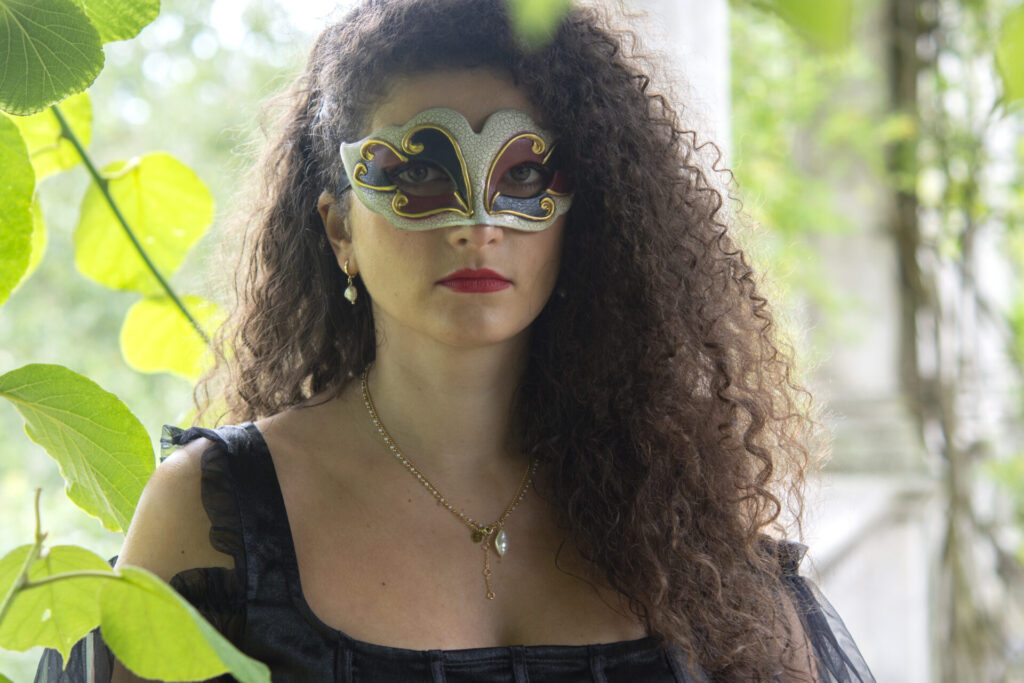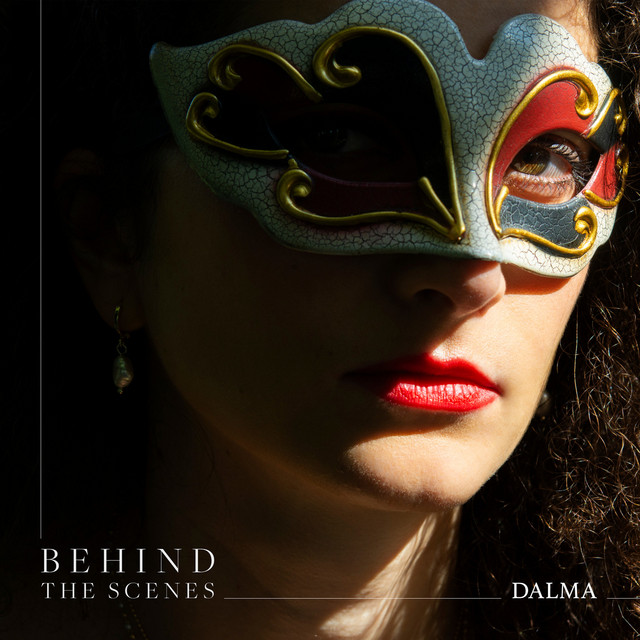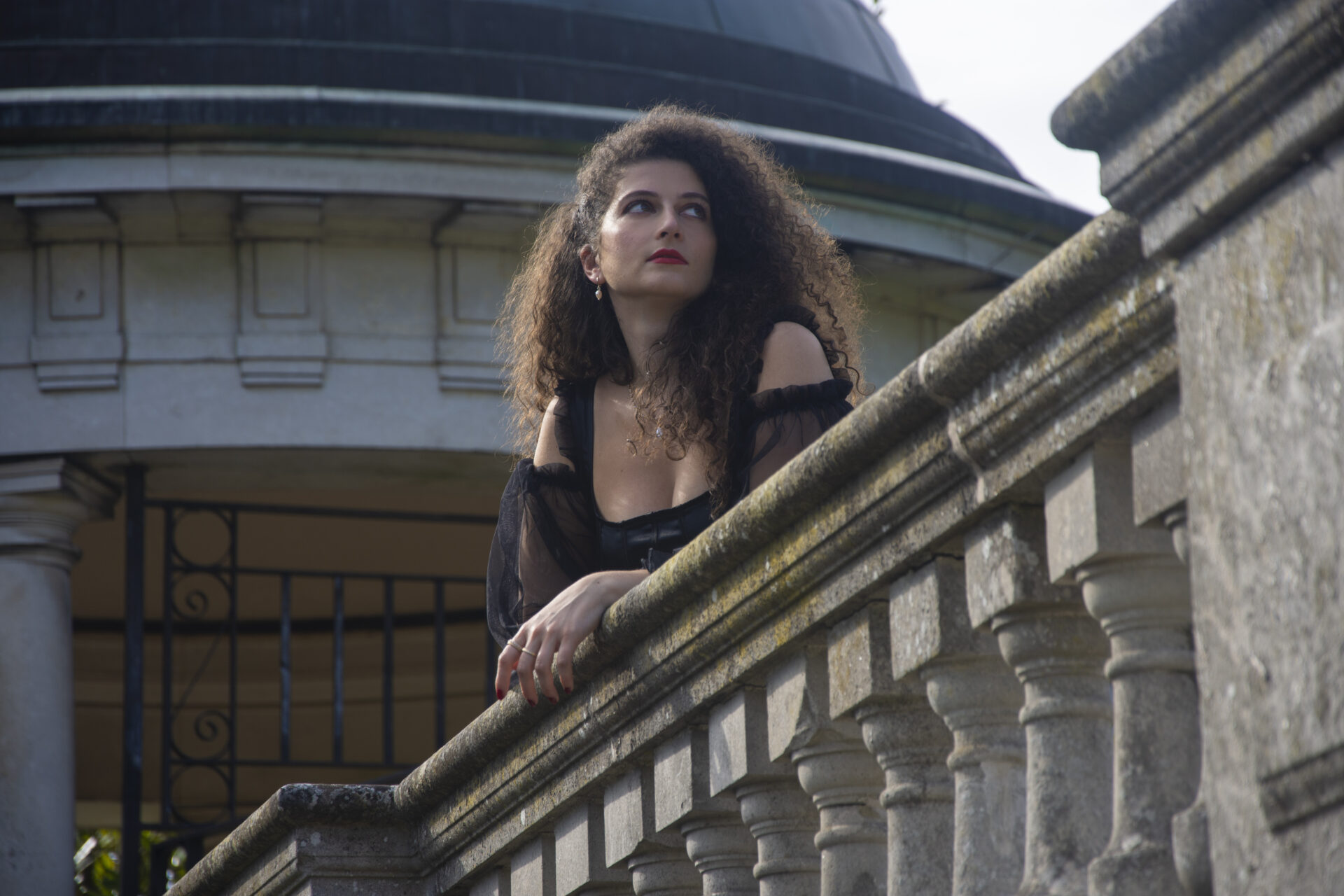Dark and enigmatic and inspired by the Baroque/Rococo Venetian aesthetic; hence the decision to give a baroque sound to the song, but with a modern twist. It takes the traditional sounds of the harpsichord and blends them with the modern sounds of the guitar and drums. Check out the exclusive interview below:

1. Can you tell us a bit about where you come from and how it all got started?
DALMA: As a child, I began singing in the church choir; however, my family did not have much musical inclination, and I did not have many opportunities to engage with music until my teenage years. It wasn’t until a friend of mine, who was learning to play the guitar, encouraged me to take a guitar class with her that my interest in music was kindled.
2. Did you have any formal training or are you self-taught?
DALMA: I would say both. At one point, my parents were unable to afford my music lessons, and as a result, I had to continue pursuing music on my own. It was only later, when I had started working, that I was able to finance my own lessons. Ultimately, I graduated from a music university with a BA degree in Creative Musicianship.
3. Who were your first and strongest musical influences and why the name ‘DALMA’?
DALMA: My strongest musical influences are still Florence and The Machines and Kate Bush. The origin of my artist name, Dalma, is a combination of the Latin noun “alma,” which means “soul,” and the initial of my first name (D for Domenica), thus creating the name Dalma.
4. What do you feel are the key elements in your music that should resonate with listeners, and how would you personally describe your sound?
DALMA: The key elements of my music lies in the concept behind each song. I start by visualising an image in my mind, and based on that, I choose the instrumental arrangements that will bring the concept to life. My goal is to create a musical experience that not only entertains but also conveys a significant message to my audience.

5. Creative work in a studio or home environment, or interaction with a live audience? Which of these two options excites you most, and why?
DALMA: It’s difficult to compare the two experiences since both are distinct from one another. Personally, I enjoy both making and recording music as well as performing live. Making music in a studio allows my creative ideas to come to life, from the lyrics to the sounds, and share them with people from all over the world. On the other hand, performing live gives me the opportunity to connect with an audience in person, which I find to be pretty magical.
6. For most artists, originality is first preceded by a phase of learning and, often, emulating others. What was this like for you? How would you describe your own development as an artist and music maker, and the transition towards your own style, which is known as Alt-POP?
DALMA: I have gone through that phase before, and even though I feel like I have established my identity as an artist, I still listen to various types of music to gain inspiration and work on enhancing my skills. Learning and evolving is a continuous process that never stops.
7. Do you feel that your music is giving you back just as much fulfillment as the amount of work you are putting into it or are you expecting something more, or different in the future?
DALMA: I got a lot of projects in mind for the future and I hope my hard work will pay off. I also believe that we determine our own sense of fulfilment, and although I am not exactly where I want to be, I still enjoy the process. For me, being able to make music is already a blessing.
8. Could you describe your creative processes? How do usually start, and go about shaping ideas into a completed song? Do you usually start with a tune, a beat, or a narrative in your head? And do you collaborate with others in this process?
DALMA: usually begin by seeking inspiration for the message I want to communicate through my songs, which often comes as an epiphany. From there, I try to develop the lyrics in a stream-of-consciousness style, while simultaneously crafting the music and refining the lyrics. Then, I focus on the mood or the message of the song and brainstorm ideas for the arrangement, selecting which instruments and sounds to incorporate. Although I primarily write my own songs, there are instances when I seek input from other fellow musicians.
9. What has been the most difficult thing you’ve had to endure in your life or music career so far?
DALMA: There was a time when I used to suffer from stage fright, which can be extremely debilitating and frustrating for a musician. It felt like a curse, and I used to feel ashamed because of it. Unfortunately, there is still a lot of stigma surrounding this issue. However, the good news is that with the right support and patience, you can learn how to manage it. Now, I can confidently say that I enjoy performing.
10. With social media having a heavy impact on our lives and the music business in general, how do you handle criticism, haters, and/or naysayers in general? Is it something you pay attention to, or simply ignore?
DALMA: If criticism is coming from someone who is trying to hurt me online, I simply ignore it. I only take constructive criticism into consideration, and I ask myself whether the feedback could potentially be helpful.
KEEP IN TOUCH:
FACEBOOK | INSTAGRAM | SPOTIFY | WEBSITE | YOUTUBE

Photo credits: Creative Shoots London
